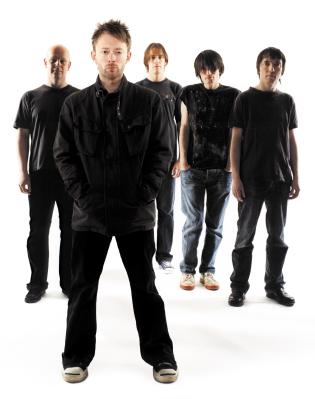Yes, that’s one of the more random headlines I’ve written, but look — I wasn’t the one who said it. Executives from Spotify and Turntable.fm really did compare themselves to popular musicians, and Pandora and TastemakerX took turns, too.
All four companies spoke at the closing panel at ad:tech conference in San Francisco yesterday, and they were all instructed by moderated Brad Berens to choose a single musician or band to represent their company. (The Beatles and Elvis were out, because they’re too obvious.) Here’s what they said:
- Heidi Browning, Senior VP Sales Marketing, Pandora — “There is no one artist or band that defines Pandora, because by definition we’re personal. The definition of Pandora is, ‘Who is my Pandora?’ … It’s kind of like that Time Magazine Person of the Year, it’s you.”
- Seth Goldstein, co-founder and chairman, Turntable.fm — David Bowie. “David Bowie more than most blurred the lines between the cyber and the real, and the fantasy and the reality. And specifically what I love, obviously, with the DJ song is he suggests that you are what you play. In the same way that when we share a photo or we tweet, that the music we choose is a fundamental way that we express ourselves and we individuate ourselves among people.”
- Marc Ruxin, founder and CEO, TastemakerX — The Velvet Underground. “I think the core philosophy behind Tastemaker X is … For any passionate vertical, there’s the game that people play and that’s, ‘I was into this first.’ I think the most timeless and anachronistic band in the history of music is The Velvet Underground.”
- Erin Clift, VP Global Sales Development, Spotify — Radiohead. “I think for a variety of reasons. One is, they’ve always pushed the boundaries and done things a bit differently. In 2007, they did the first digital download release for their “In Rainbows” album. And that really had not been done before, and it was reported that the reason they did that was they wanted to offer their music to all the world at the same time.”
And yes, there was some talk about advertising models too, though mostly in generalities. The most challenging question actually came from an audience member, who asked about what Pandora was doing to ensure that advertising (which makes up the vast majority of its revenue) could cover for its expensive royalty payments, “because I want you to be around for a very long time.” Browning noted that the majority of Pandora listeners are exposed to advertising, but she also acknowledged that Pandora pays higher royalty rates than radio.
“We are happy, and I want reiterate that, happy to pay our artists.” Browning said.
